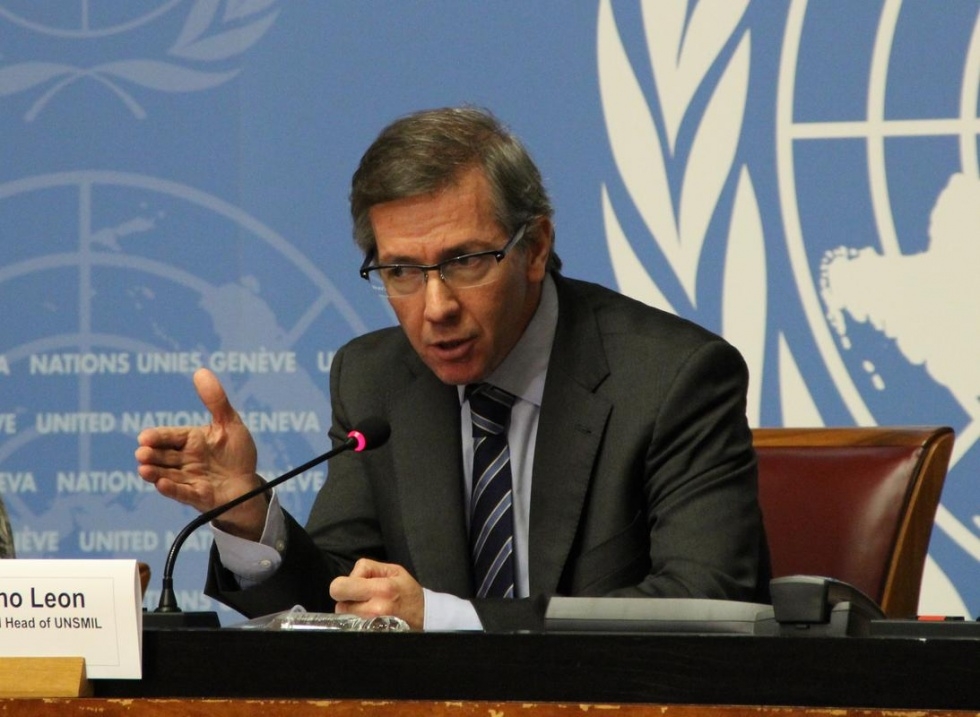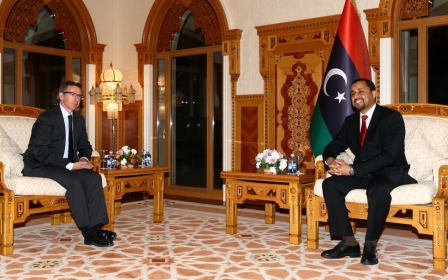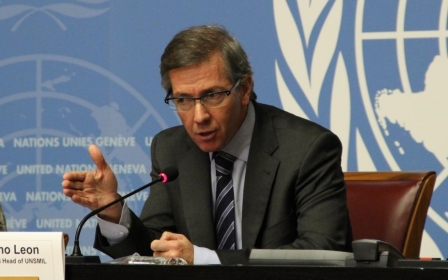Militias announce Libya truce after Geneva accord

TRIPOLI, Libya - An Islamist-backed militia alliance on Friday announced a ceasefire in conflict-strewn Libya, following an agreement at UN-brokered peace talks between warring factions.
The militias have agreed to "a ceasefire on all fronts" in the North African country on condition that "the other parties respect the truce", Fajr Libya (Libya Dawn) said in a statement.
It also pledged to open up "safe passages to channel humanitarian aid", especially in Libya's besieged second city of Benghazi.
The alliance, which did not take part in the first round of the Geneva talks, called on the international community to step up efforts to prevent "foreign fighters from flooding" into Libya.
The announcement came just hours after the United Nations announced that the warring factions had agreed on a roadmap to form a unity government following two days of peace talks in Geneva.
Libya has been wracked by conflict since the overthrow of dictator Muammar Gaddafi in a 2011 uprising, with rival governments and powerful militias battling for control of key cities and the country's vast oil riches.
The UN special envoy to Libya, Bernardino Leon, had warned at the start of the Geneva talks that they were a last-ditch effort to prevent all-out chaos.
"The participants agreed after extensive deliberation on an agenda that includes reaching a political agreement to form a consensual national unity government and the necessary security arrangements to end the fighting," a UN statement said.
They called on all the players to cease hostilities and "expressed their unequivocal commitment to a united and democratic Libya governed by the rule of law and respect for human rights."
They agreed to work towards the release of abducted people, providing and allowing humanitarian aid to reach affected regions, opening airports and securing land and maritime navigation.
The delegates will return to Geneva for a fresh round of talks next week after consultations.
The internationally-recognised government and elected parliament decamped last summer to the country's far east after Libya Dawn seized the capital Tripoli and set up its own administration.
The militia alliance also holds the third city, Misrata, and it launched a bloody offensive in December to seize control of key oil terminals but was repelled by the army.
The broad agreement cobbled together in Geneva also saw the factions pledge to work towards ensuring the free movement of people across the divided nation.
Legitimacy of state institutions
They vowed to respect the legitimacy of state institutions, work towards the peaceful transfer of power and reject violence and terrorism.
The agreement came after months of UN efforts to get the opposing sides back to the negotiating table after a single round of talks in September.
A major concern in Libya is the proliferation of Islamist militias in key areas such as Benghazi.
Those militias are led by the Ansar al-Sharia group, blacklisted by the United Nations for its links to al-Qaeda.
Leon had also underscored the threat of Libya becoming a hotbed of Islamist insurgency, saying it menaced North Africa, the Middle East, the Sahel and Europe, which lies on Libya's doorstep.
Middle East Eye propose une couverture et une analyse indépendantes et incomparables du Moyen-Orient, de l’Afrique du Nord et d’autres régions du monde. Pour en savoir plus sur la reprise de ce contenu et les frais qui s’appliquent, veuillez remplir ce formulaire [en anglais]. Pour en savoir plus sur MEE, cliquez ici [en anglais].



